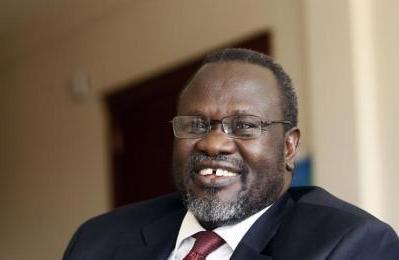Unity state official opposes power reward to S. Sudan rebels
September 3, 2015 (RUMBEK) – A county commissioner in South Sudan’s Unity state has opposed the regional mediators’ decision to give the armed opposition forces an upper hand in the leadership of Unity and Upper Nile states in the recently-signed peace accord.

He claimed the IGAD-Plus agreement was likely to fuel more conflicts, adding that giving full authority over Upper Nile and Unity states to rebels will encourage more armed struggle in South Sudan.
“The big question is did IGAD-Plus take into consideration the military situation on the ground in its conclusion that Unity state be given to SPLM/SPLA-IO? If not, what rationale did they use to gravely surrender the control of our state and people to the rebels?” asked Joak.
The commissioner further warned of more divisions should rebels take over control of the regions proposed in the compromise peace deal.
“Our gallant sons and daughters of Unity State as well as the national army liberated the state from Riek Machar with their precious blood and their ultimate sacrifices should not be betrayed by handing back control to the same person they defeated on a golden plate,” Joak said in a statement extended to Sudan Tribune on Thursday.
The Payinjiar commissioner said the decision by South Sudanese to fight rebels was a wise way to clear them out of the country instead of giving them positions in Transitional Government of National Unity.
“We cannot accept to be handed to someone who is planning to unleash terror on us during the transitional period,” he stressed.
Joak, in his statement, accuses the regional mediators of allegedly backing the rebels by allocating positions to those who opted for arms.
“We believe that IGAD-Plus is not only serious in bringing the crisis
in South Sudan to an end, but have an hidden agenda of changing the duly-elected government in our country and to install a puppet regime in order to have their hands on our resources,” he added.
The official claimed the rebels had been defeated on all military fronts and that rewarding them through power sharing was “unwise”.
“Riek Machar and his group have been defeated militarily on the ground in Unity state and across the country. Why would IGAD-Plus empower him by giving him a huge share in the national government,” said Joak.
THE COMPROMISE PEACE ACCORD
South Sudan’s president Salva Kiir signed the long-awaited final peace agreement to end the 20-month long civil war in the youngest world’s nation on 26 August, more than week after his main rival and former vice-president, Riek Machar inked the same document.
The final peace agreement, which originated from the 24 July 2015 Compromise Peace Proposal by the East African regional bloc, the Intergovernmental Authority on Development (IGAD) and its international mediation partners, saw some changes in the course of negotiations in Addis Ababa between the two rival leaders, Kiir and Machar.
On power sharing deal, president Kiir’s government will no longer control 100% of seven of the ten states as the armed opposition faction of the Sudan Peoples’ Liberation Movement (SPLM-IO) under the leadership of Machar will now get 15% of seats in each of the seven states of Warrap, Lakes, Western Bahr el Ghazal, Northern Bahr el Ghazal, Central, Western and Eastern Equatoria states.
Likewise, Machar’s faction will no longer control 53% of the governments of the three states of Jonglei, Upper Nile and Unity states. In the three states, government will get 46%, SPLM-IO 40% and former detainees and political parties, 7% each. While SPLM-IO will nominate governors for the two oil-rich states of Unity and Upper Nile, government will nominate governorship position for Jonglei state.
At the national level, the power sharing ratio remained as the original proposal of 53% for government, 33% for SPLM-IO and 14% split equally between former detainees and political parties.
(ST)
